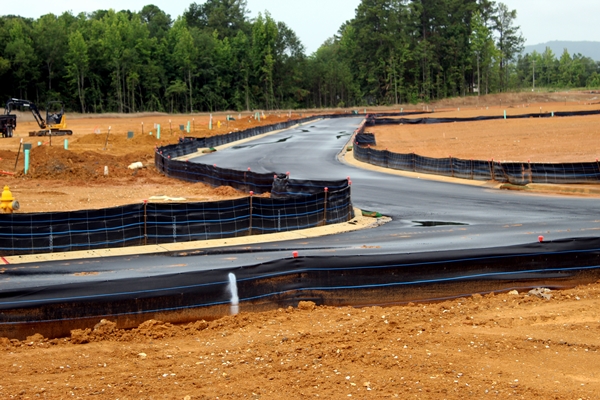Do You Know Your Neighbors

As an Association Manager, I’ve encountered my fair share of unusual situations—but what recently happened in one of our communities was both new and deeply unsettling.

As an Association Manager, I’ve encountered my fair share of unusual situations—but what recently happened in one of our communities was both new and deeply unsettling.

As a frequent user of vendors, contracting for goods and services is an important and large part of community association operations. Community associations need to be careful when considering and entering contracts as the contracting process inherently involves liability and risk. To minimize this risk, community associations should carefully follow a set contracting process and procedure. Effectively leveraging legal counsel is an important part of this process.

Amendments to the Common Interest Community Ombudsman Regulations went into effect August 1, 2025. These amendments change the required association complaint procedure. The changes may appear minor but add clarity and are favorable.

The Trifecta of Connection: Authority, Humanity, Likeability
If you want your emails to land well and not linger unread, you need to strike a balance. The magic happens when your message conveys three key qualities:

When working with a Certified Public Accountant (CPA), board members and property managers often encounter terms like audit, review, and compilation. These represent different levels of financial statement services — each with varying degrees of assurance, detail, and cost. Choosing the right service level depends on your association’s needs, governing document requirements, and your budget. In this post, we'll break down the key differences between these service levels and when each might be appropriate.

The Benefits for Condominium and Townhouse Communities
In multi-family communities such as condominiums and townhouses, efficient waste management is a core part of maintaining safety, cleanliness, and resident satisfaction. One service model gaining renewed interest is hand pickup trash service—a system where residents place their trash in designated community areas on scheduled days for collection by a professional team.

As an Association Manager, one of our most critical responsibilities is helping our Boards prepare a sound, forward-thinking budget. A well-prepared budget not only ensures the financial health of the community, but also reflects a proactive approach to long-term planning, maintenance, and homeowner satisfaction. The budgeting process may seem daunting, but with the right structure and a bit of prep, it becomes an opportunity to add real value and lead your Board through another successful year of management.
Here are some of the essential steps for creating an effective budget for your HOA or condo association:

Investing the time to find the right landscaping partner during budget season.
There is a financial aspect, as landscaping often eats up a large portion of the HOA’s budget, and the quality of that service directly impacts residents’ satisfaction and the property's overall value. Landscaping can represent a significant percentage of the total HOA budget, with estimates ranging from 25% to 75% depending on community size and expectations.
Investing the time to choose the right vendor, who not only fits the budget but aligns with the community’s values, can save headaches down the line. It’s about finding the right balance of cost, quality, and reliability. By carefully planning the budget and following a structured process for selecting and managing landscaping vendors, HOAs can ensure their communities remain beautiful and well-maintained while also safeguarding their financial well-being.

Budgeting for a community association can be challenging. It requires balancing the desire to keep assessments low with the need to cover the day-to-day expenses and accumulate funds for future major repairs and replacements. As auditors, we regularly compare association budgets to actual financial results. Sometimes, the numbers line up well. Other times, budgets fall significantly short—or, in rare cases, end up being more than necessary. Here are some of the top budget-blunders we see:
Ignoring Bad Debts: It’s common for associations to fail to consider bad debts in the budget. The budget for assessment income is based on the assumption that all owners are going to pay their assessments when due. However, for many associations that isn’t the case. Boards should consider the historical delinquency rates and include an appropriate bad debt expense line item in the budget.

The annual budgeting process for a Community Organization can incorporate three different budgets. You have a replacement budget (Replacement Reserves), an annual budget, and a budget for non-annual non-replacement items (Operating Reserves). Some of these budget items may not apply to all associations.
The budget can be prepared either by the Association Manager or by the Association’s Treasurer.

Developing a community is more than just breaking ground and laying foundations- it’s about shaping an environment where residents feel secure, engaged and invested. As a community manager, navigating new developments requires careful planning, effective communication, and strategic problem-solving to balance progress with sustainability.

Playgrounds are a wonderful addition to any neighborhood. Playgrounds help foster a sense of community by giving residents a convenient way to connect with neighbors while their children play and burn off energy—often year-round, thanks to Virginia's mild weather. Most importantly, playgrounds offer a space for kids to take risks and explore boundaries safely.

The Virginia General Assembly continued to take an interest in the important work of community associates in its 2025 session. We highlight below notable changes that may affect property owners’ associations and condominium unit owner associations.
These changes will take effect on July 1, 2025.

They’re aggressive, persistent, and showing up in more places than ever before. Red Imported Fire Ants (RIFA) have become an increasing concern for communities across Hampton Roads. Despite their growing presence, infestations often go unnoticed until they’re widespread—causing costly damage, painful stings, and long-term control challenges. For HOA boards and community managers, awareness is the first line of defense. Let’s take a closer look at why fire ants are thriving, what signs to watch for, and how proactive action can protect your community.

Particular times and events stand out in my mind as I mature (age; I’ll never grow up). “Dirty Feet” is one of them. In a former life, I often attended meetings at the BASF plant in Anderson, South Carolina. In the lobby hung a banner that read: DIRTFTET. After numerous visits and much brainstorming, I was at a loss in determining its meaning. Not being shy, I finally asked.

Managing an HOA can sometimes feel like juggling flaming swords while riding a unicycle. Between handling homeowner complaints, organizing meetings, and keeping up with ever-changing laws, it’s easy to feel overwhelmed. Enter AI, your new best friend (after coffee).

As spring approaches in Southeastern Virginia, HOA communities must take proactive steps to manage their ponds and stormwater devices. These systems play a crucial role in managing runoff, preventing flooding, and improving water quality. However, without proper management, they can quickly become sources of erosion, pollution, compliance violations, and costly repairs.

Vendor relationships are at the heart of successful community association management. Whether it’s landscaping, maintenance, security, or financial services, the quality of service delivered to homeowners often depends on the strength of the partnerships between community managers and business partners. These relationships, however, don’t develop overnight. They require careful selection, clear expectations, and ongoing communication to ensure they remain productive and beneficial for both parties.

As we step into 2025, the community association management industry continues to evolve rapidly. From technological advancements to shifting resident expectations, today’s community managers must be more adaptable, tech-savvy, and forward-thinking than ever before. The days of simply enforcing governing documents and coordinating maintenance are long gone—today’s managers are strategic leaders, financial experts, and customer service professionals all in one.
